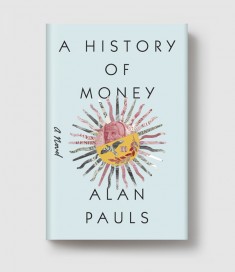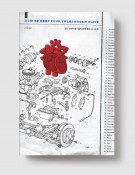
List price: $24.95
- Pages208
- ISBN9781612194233
- Publication dateJune, 2015
- Categories
- Booksellers
- Media
- Academics & Librarians
A History of Money
Alan Pauls
Translated by Ellie Robbins
A major new novel from the writer Roberto Bolaño called “one of the best living Latin American writers”
Alan Pauls, one of Latin American literature’s rising stars, combines the intimate and the political in a novel that, although it is set in Argentina in the 1970s and ’80s, will bring to mind books like Choire Sicha’s Very Recent History and Sam Lipsyte’s The Ask in its subtle, brilliant depiction of the place of money in its protagonists’ lives.
It begins with a body: a top executive of an iron and steel company dies after his helicopter, travelling toward the factory where he is due to meet with striking workers, plummets into the river. The briefcase full of money which he was carrying disappears without a trace. Accident, or assassination? And where is the money?
A History of Money revolves around this event, as does the imagination and memory of the unnamed protagonist of the novel, who returns over and over to it even as he reflects on the role of money in his family and his own life. His parents are divorced: his father is a gambler who plays in all-night poker games and carries around all of his money in a wad of cash; his mother is a socialite who squanders her inherited fortune on a lavish lifestyle. Our protagonist, for his part, pays—in every sense of the word.
And his individual story is echoed in the larger story of Argentina in the 1970s and ’80s, where money is everything: promise and punishment, dream and distaste.
Praise for A History of Money
“If the mark of a great novelist is to create expansive worlds which readers can inhabit freely, Pauls is a true master builder.”
—NPR
“Powerful… Intense … A desolate, delighted history of our impermanent valuations.”
—New York Review Daily
“[Pauls is] a top Argentine writer.”
—Bloomberg Businessweek, Seven Books Worth Your Summer Downtime
“Profound, unique, utterly compelling and unforgettable. Truly, I have never read anything quite like it, nor been so impressed by a story with such a narrow focus yet at the same time such universal enormity.”
—Charles Larson, CounterPunch
“A History of Money…offers support for Bolaño’s assessment [of Pauls as ’one of the best’], as a dense, rich, slyly poetic and intense imagining of the life of a son, a father, and a mother and through them the life of Argentina.”
—Buffalo News
“Gripping… Exquisite… [Pauls’s] gifted storytelling often spins out into witty, beautiful essays.”
—Maclean’s (Canada)
“Perfectly pitched… His complex sentences can run to whole paragraphs, swirling out into erudite or humorous digressions… By showing how a country’s turbulent political and economic history interweaves with the personal, he gives his story a universal appeal.”
—The Lady, five-star review
A Publishers Weekly Book of the Week
“Distinctive storytelling.”
—Library Journal, Ten Key Novels That Will Take You to Other Worlds
“This caustic indictment, and the stylistic tour de force through which it’s delivered, should help secure English speakers’ awareness of Pauls as an important writer.”
—Publishers Weekly, starred review
“An eloquent, cycling chimera of economy, currency, and family strained by overburdened purse strings… The frantic urgency of Pauls’ fictional take on a nation in flux will resonate for years to come.”
—Booklist
“Inventive… A pointed commentary on the fragility of money and the oppressive Argentine politics of the 1960s and ’70s.”
—Kirkus Reviews
“The rise of Alan Pauls is the best thing has happened to Argentinean literature since the appearance of Manuel Puig.”—Ricardo Piglia, author of Artificial Respiration
“One of the few truly essential contemporary Argentinean writers. He narrates with skill exactly what happens in a country and among its inhabitants when money means nothing, absolutely nothing, and yet it is the only thing worth counting.”—Patricio Pron, ABC
“A dark and yet fluid story, always perfectly controlled.”—La Vanguardia
Praise for The Past
“A momentous novel.”—Times Literary Supplement
“Bold and powerful writing.”—El Pais
